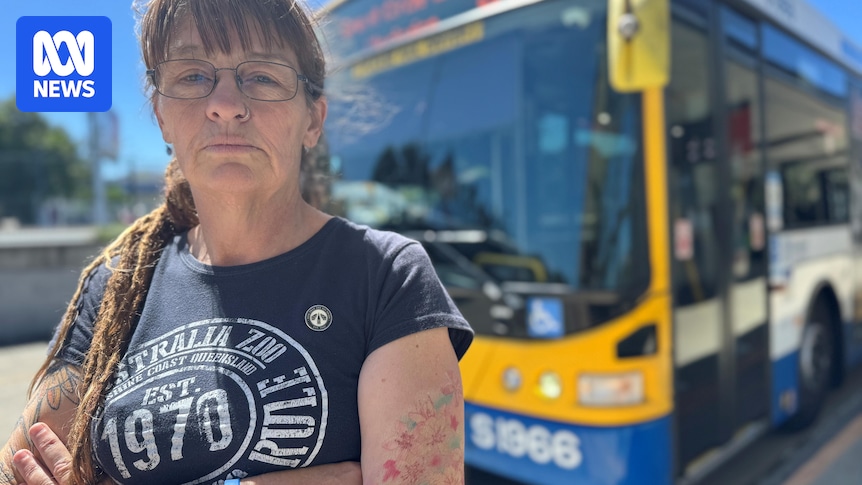Female transport workers have been forced to hold in their urine, remove tampons next to their vehicles or use buckets to relieve themselves due to filthy, unsafe unisex bathroom facilities.
Warning: Some images in this story are confronting.
A union survey found that three-quarters of women working in the industry across the country reported suffering health issues because they cannot access clean, safe or private toilets while on shift.
The Rail, Tram and Bus Union (RTBU) surveyed 821 women who work in transport for their report titled “It’s a Bloody Mess”, and found three in four reported suffering health problems such as urinary tract infections, dehydration or stress.
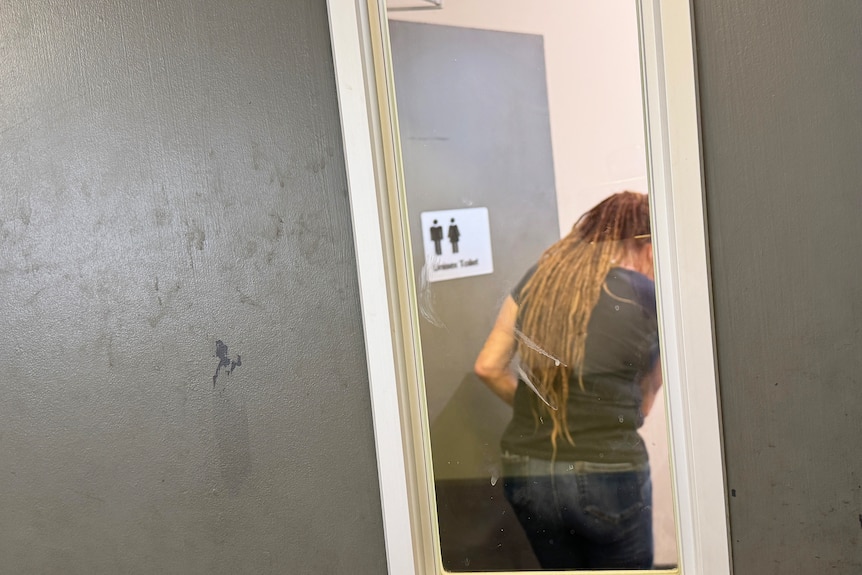
Jeraldine Graham checks the ground before walking into the unisex toilet at Toombul bus interchange. (ABC News: Melanie Vujkovic)
Brisbane bus driver Jeraldine Graham said she planned her shift around where she could safely or comfortably use a toilet and often held it in for five hours to avoid using one at all.
“The toilets are horrendous, they are dirty … the floors are covered in urine,” she said.
“They are so bad that all through winter I wear shorts because the thought of having the bottom of my trousers running through that is disgusting and the smell is unbelievable.”
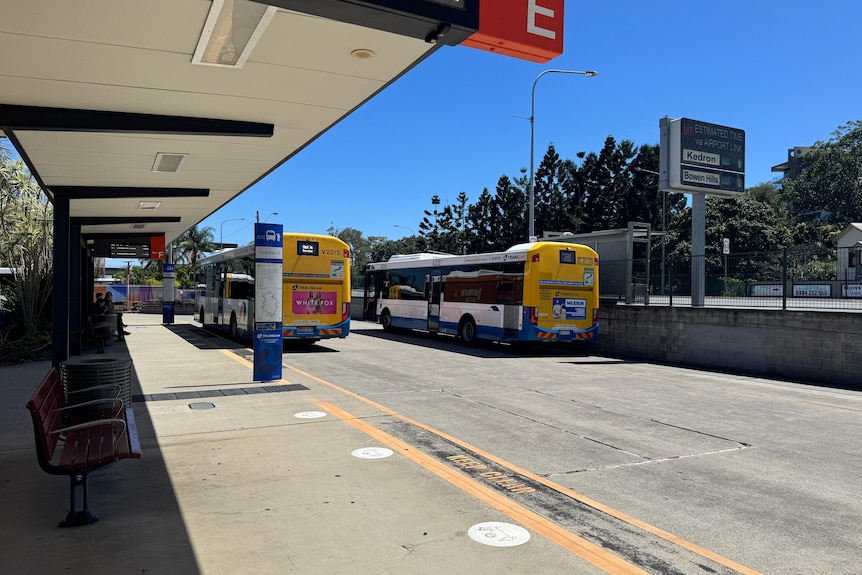
The bus interchange at Toombul, which used to be attached to a busy shopping centre but is now surrounded by empty land, and an unlit carpark. (ABC News: Melanie Vujkovic)
Until she started working with the company three years ago, the 55-year-old said she had never suffered a urinary tract infection (UTI).
She has since had eight.
“The doctors have told me it’s brought about by having to hold on too long,” she said.
“So to fix that, I’ve now reduced, and many other women have reduced our fluid intake, so that’s resulted in me getting headaches.”
The report included harrowing firsthand accounts from women, with some reporting being forced to justify toilet breaks over public radio, bleeding through clothes while on their period or wetting themselves at work because they could not access a toilet.
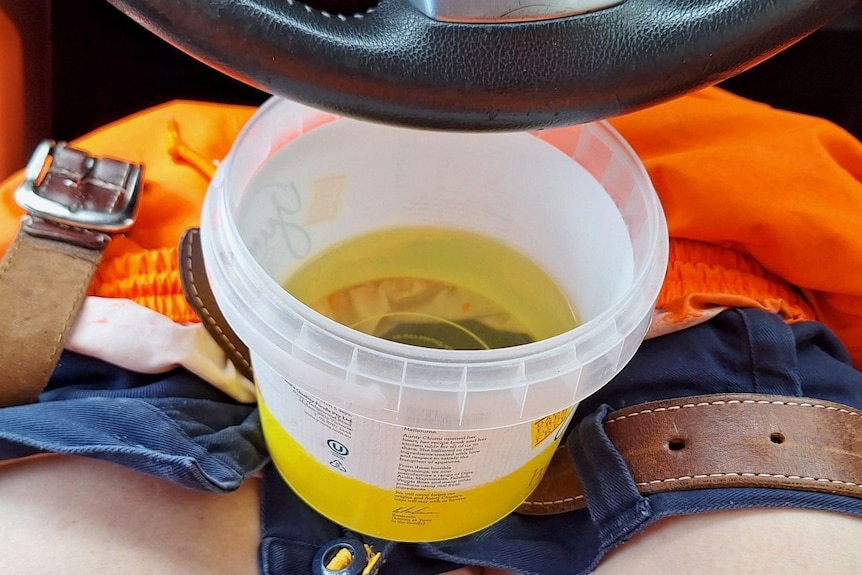
Train drivers say they often choose to urinate in their cars over using public toilets. (Supplied)
Others reported carrying used period products in their pockets or bags during shifts and even taking contraception to skip periods due to lack of sanitary facilities.
“We’ve had members hospitalised with kidney infections and recurring UTIs simply because they can’t access a clean toilet,” RTBU national vice president (women) Leanne Holmes said.
“This is more than just a workplace issue. It’s a national health and safety crisis.”Train drivers use buckets to ‘pee inside the car’
Cathy Birch has been in the rail industry for 13 years as a train driver, a signaller and now as a casual track protection coordinator.
She said many workers did not have frequent access to clean, safe toilets with sanitary bins.
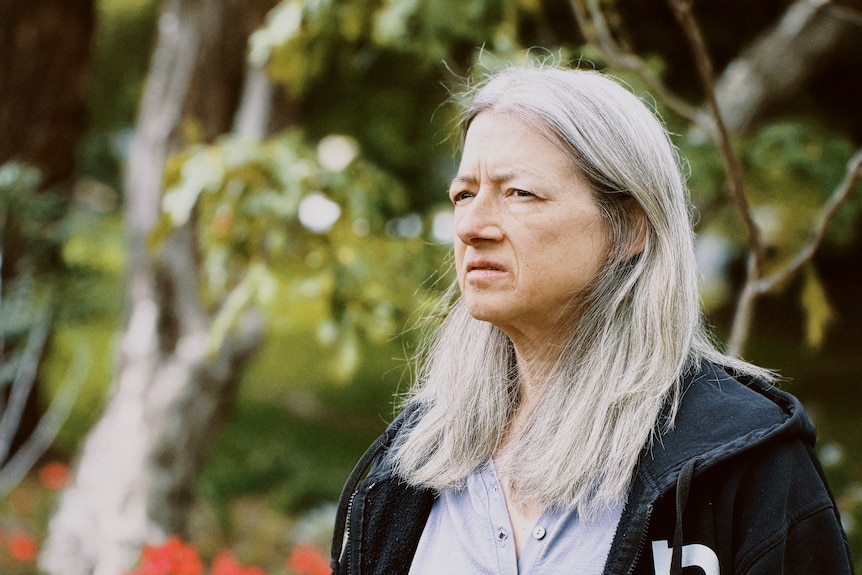
Cathy Birch has been in the rail industry for 13 years, as a train driver, a signaller and now as a casual track protection coordinator. (ABC News: Nico White)
“One of the things I do when I arrive at the site in my car is to plan carefully where I park. If I use the front ledge of my driver’s door to perch on while I have a wee there, I would then have the driver’s door open and the back door open, which creates a screen around me,” she said.
“Sometimes if I’m caught and it’s raining really hard, I’ll use a bucket I keep in my car to pee inside the car and then tip it out.”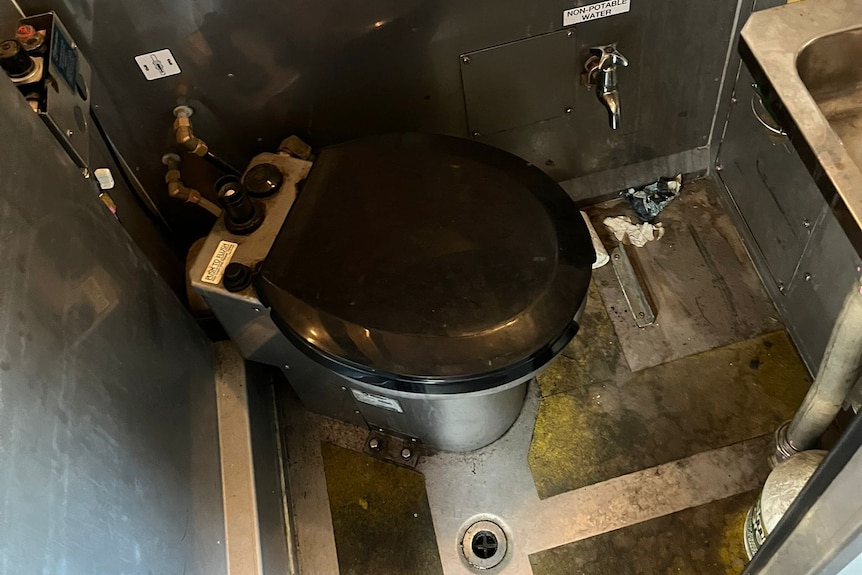
The condition of toilets for freight locomotive drivers. (Supplied)
She said drivers could not always access train station public toilets because unstaffed stations were locked.
“Sometimes though, they are absolutely revolting. Sometimes I reckon my hands are dirtier coming out of a public toilet than they were if I just had a wee in my car.”
Women forced to use toilets in public parks overnight
Ms Graham said she was often told by her employer to use public facilities in times of need, but many women reported feeling unsafe, sometimes having to walk through “dark, scary” parks to access facilities.
“I do the overnight shifts, which I really enjoy, but I really have to watch what I drink because it takes me about 10 to 11 minutes to walk where I go, through the park into what we call ‘the dungeon’,” she said.
“That’s my only opportunity to go to the toilet for sometimes an hour, an hour-and-a-half.
“Then you have to walk back to your bus, and you’ve often got a four-minute turnaround to get that done.”
The issue has been ongoing for several years, with the union writing to Brisbane City Council in 2021 after talks in late 2020.
Calls for national standard
Four in five survey respondents told the RBTU they had resorted to dangerous or undignified coping strategies.
Almost half said they did not have access to sanitary bins when needed, and some were forced to empty them themselves.
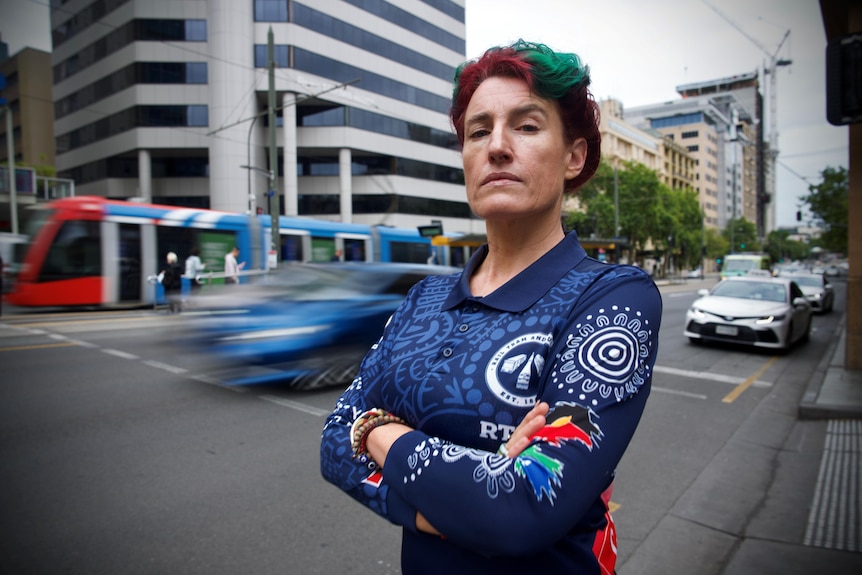
Leanne Holmes says the report exposes appalling standards across the country. (ABC News: Lincoln Rothall)
Health issues reported as a result of these measures included:
limited fluid intake (46 per cent)stress or anxiety over access (46 per cent)UTIs (28 per cent)digestive issues (15 per cent)
Ms Holmes said the report exposed appalling standards across the country, and demanded urgent action from employers and governments.
“No-one should be forced to risk their health or dignity just to do their job,” Ms Holmes said.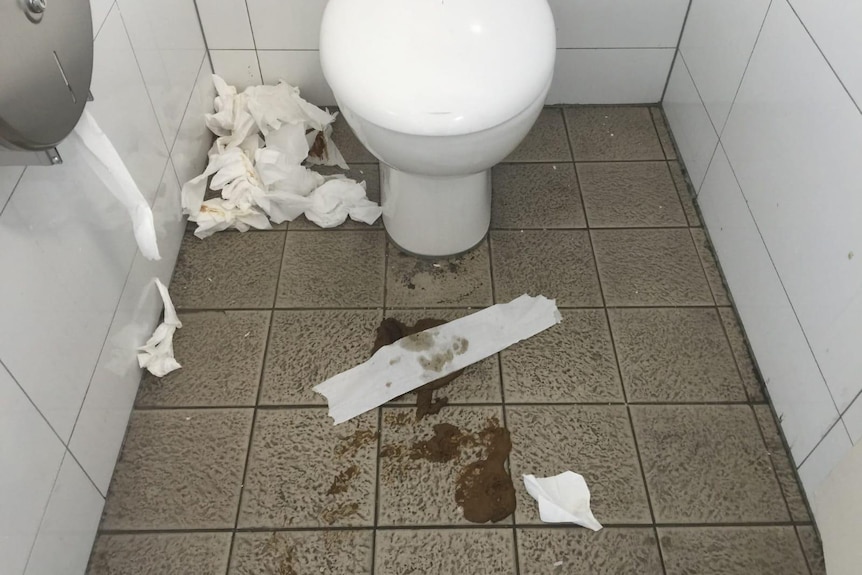
The condition of some public toilets drivers are forced to use. (Supplied)
The RTBU has called for a mandatory national standard, including guaranteed access to dedicated women’s toilet facilities, proper sanitary disposal units serviced regularly, regular cleaning and maintenance and freedom for workers to take toilet breaks when needed.
Federal Transport Minister Catherine King said all employers had a responsibility to provide adequate, clean, and accessible facilities under Safe Work Australia’s code of practice.
“I am pleased that in many instances, state transport agencies are working with transport operators to retrofit facilities drivers need and deserve at their depots and rest stops,” she said.
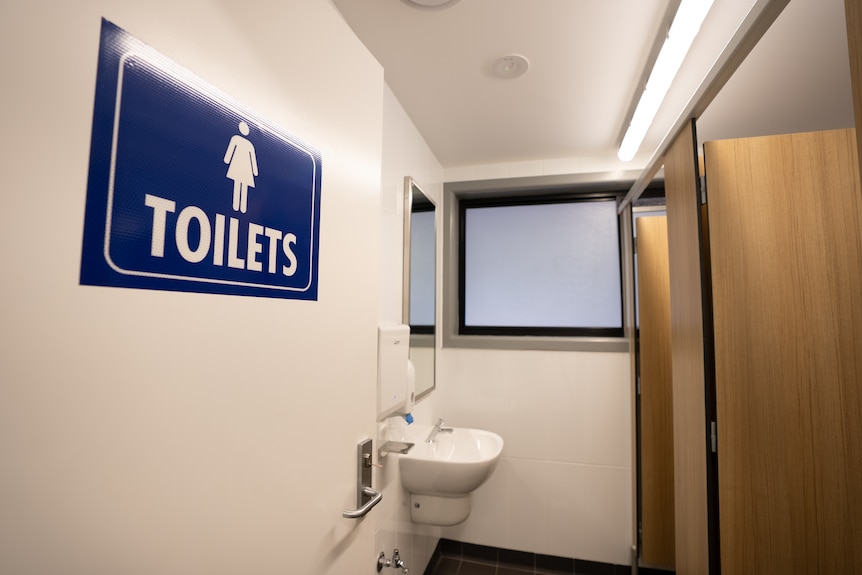
The new facilities in Paramatta have dedicated female toilets for the first time. (Supplied: Transport for NSW)
Female bus drivers in Sydney’s west were given access to dedicated toilets for the first time last month, with the NSW government’s rollout of $17.8 million in new break facilities.
Until now, drivers at the busy Darcy Street Parramatta interchange layover had to use one male and unisex toilet.
Improved rest facilities were a recommendation of Labor’s Bus Industry Taskforce, which heard concerning stories of drivers taking buckets on the road with them and hundreds of drivers sharing a single Portaloo in Parramatta for 15 years.
Thirty-four more locations are set to receive better bus driver facilities.
‘The one thing driving me out of the industry’
Ms Birch said the response from male workers was often: “If you can’t cut it, go and find another job.”
She said managers would often say, “That’s how it is. Suck it up or move on.”
“We shouldn’t be changing tampons next to the track, with nowhere to wash our hands,” Ms Birch said.
Ms Graham said it had changed the way she felt about going to work and what shifts she took, and it was deterring other women from working in the industry.
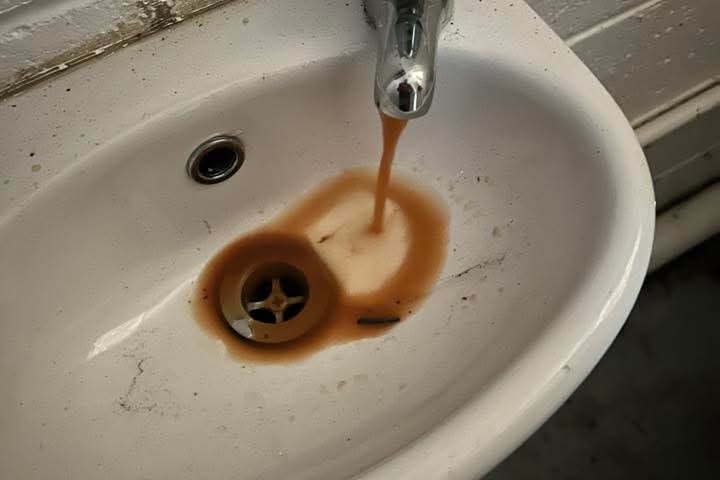
Brown water coming out of a tap a bus driver had to use in Tasmania. (Supplied)
“It’s the one thing that turns my stomach, and it’s the one thing that is driving me out of the industry, continually being sick and being scared,” she said.
A spokesperson for NSW Transport said the department wanted everyone delivering transport services to feel “respected, valued and proud”.
“That includes our female workforce, and providing basic amenities is just part of what we can do to show our commitment to creating more inclusive and equitable workplaces,” they said.
The missing group of workers who could help fix the housing crisis
In the rail space, the government said both Sydney Trains and NSW TrainLink were “inclusive workplaces”.
“Station staff have access to facilities at all stations and are given allocated breaks within their rosters. At busy stations, relief staff are also rostered to provide coverage when station staff need to use amenities,” they said.
It also said toilets were regularly cleaned, sanitary bins were included and women-only portable amenities were available at construction sites.
Brisbane City Council’s civic cabinet chair for transport, Councillor Andrew Wines, said the council had provided 130 secure toilet facilities along bus routes and dedicated security officers.
“Our bus drivers deliver an essential service for our city and we want them to feel safe and supported every time they go to work,” he said in a statement.
“Unfortunately, crime, particularly youth crime, is a growing problem.
“While crime is a state issue, we’re doing what we can to make our suburbs safer, including ensuring our bus drivers’ work environment is as safe as possible.”

